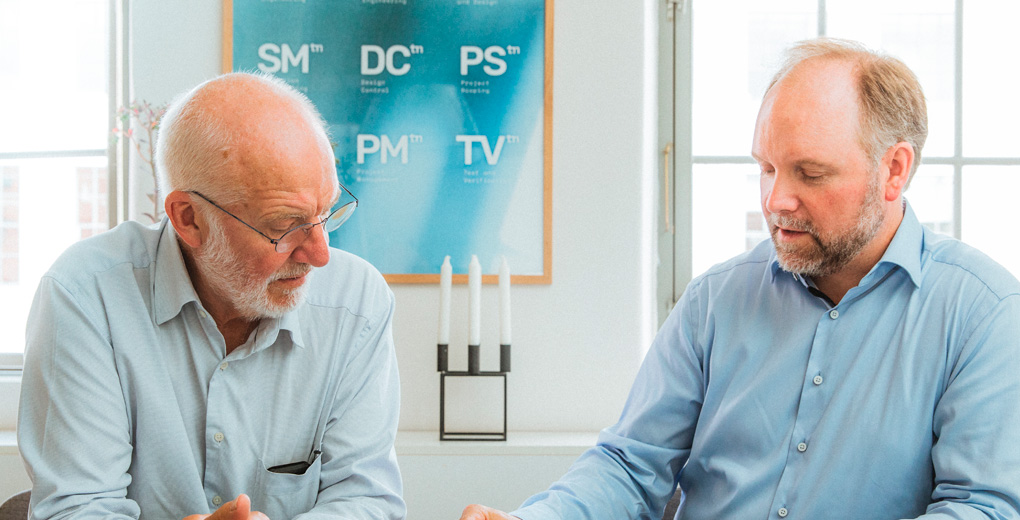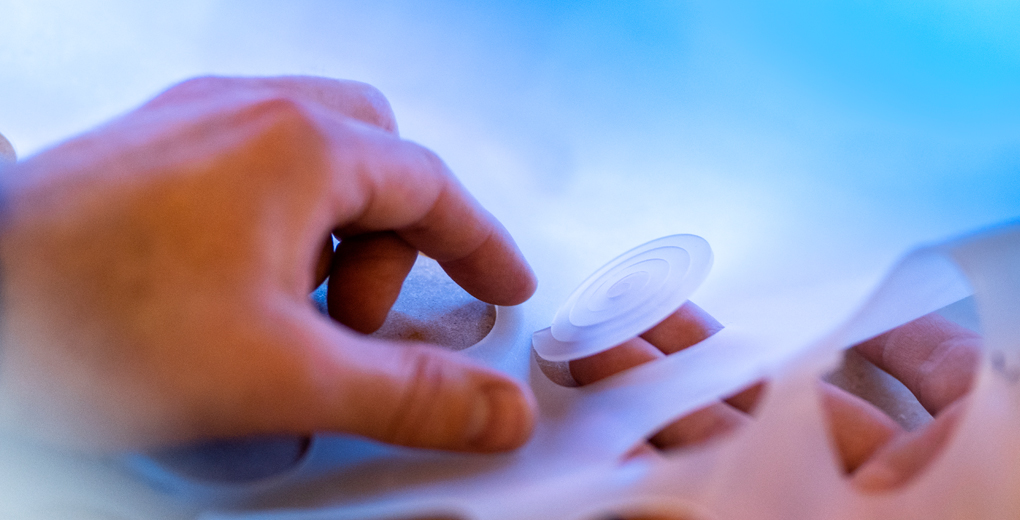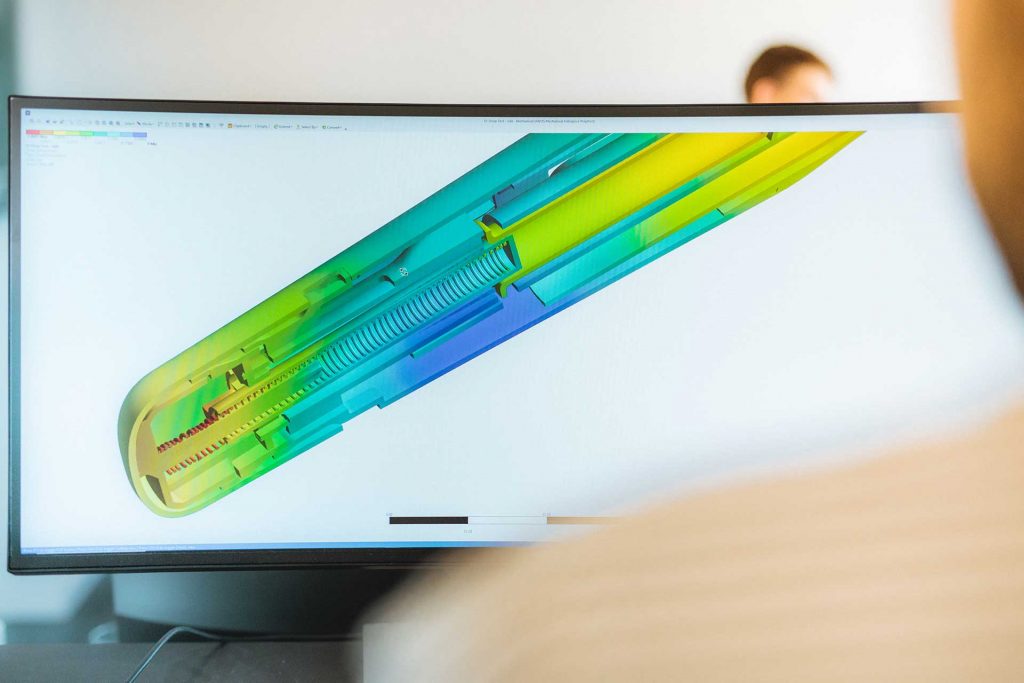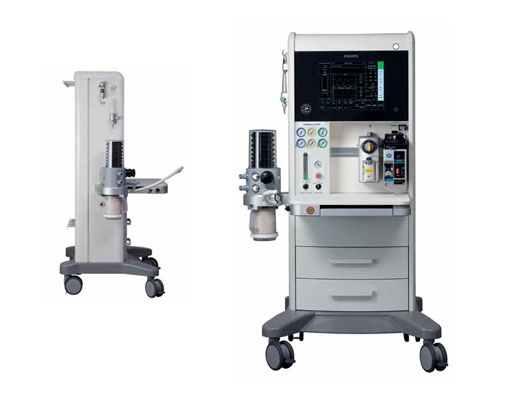INTRACAIR
Fast-tracking proof of concept with strategic use of Scoping
For the development of their novel medical device, the private company IntraCair has entered into a unique collaboration with PhDs and professors from Aarhus University as well as hospital nurses and doctors. Teaming up with Technolution’s Scoping experts, they have proved it possible to take several years off the preclinical investigation phase and fast-track the project to clinical trials.



Developing a new medical device always involves several processes running simultaneously and plenty of hoops to jump through on the way to placing the final product on the market. For IntraCair, who is in the process of developing a sealing device to support wound healing for tracheostomy patients, these had been the challenges of the past few years.
Between the development of prototypes, attracting project funding, and gathering research, it was hard to move the project forward at the intended speed. As it became clear that the project needed some form of added momentum to make more significant progress toward its goal, a new management team was established, and Technolution was brought in to help.
As the initiation of this new project setup, the group used Scoping methods to analyze challenges and solutions and to create a framework for the coming project phase. This led to the realization that obtaining proof of concept was the highest priority, and the project plans were laid to include only activities that supported this goal, the first of them being to secure the necessary funding.
Scoping is a problem solver – even when delays are the problem
Time is indeed of the essence when you depend on external funding for keeping your project alive as was the case for IntraCair’s device development project. As a consequence of this, the biggest problem to solve was speeding up the clinical research phase to obtain proof of concept and be able to start clinical trials on humans.
The strategy was to trim down project activities by eliminating everything that did not contribute to reaching the goal set by the project group, and at the same time creating urgency for the tasks that were essential for finalizing the clinical research and reach proof of concept.
For the fast-track approach to be a success, there was not much room for reworking or stalling out, which was why it required tight planning and monitoring as well as a unique kind of cooperation between project team members.
Using Scoping to leverage a non-traditional project team setup
Part of the reason for the speedy and efficient research phase in the IntraCair project was the tailoring of a specific form of collaboration between the project team members, who come from very diverse parts of the medical device industry.
IntraCair inventor and startup entrepreneur Karen Juelsgaard is trained and still works as an ICU nurse and as such has extensive practical experience from her close contact with the product’s end users. From Aarhus University, a group of PhDs and medical professors have been responsible for the research effort involved in the project.
Together with the product development consultants from Technolution they created their very own style of cooperation based on knowledge- and skill sharing as well as a consensus-seeking approach to planning and timelines. Working in a close-knit group with a clear focus and a high communication frequency has helped to move tasks forward at high speed and with very few mistakes.
The fact that core members of the project group are also investors has contributed to the high level of motivation to reach the goal fast. Standing out from the typical project group setup, this collaboration has proved that university professors, medical professionals and private company owners can complement each other’s strengths and benefit from their different backgrounds and approaches.
A new phase for IntraCair’s device development project
In this innovative project, Technolution’s role has mainly been to assist with developing a framework for setting clear goals and achieving them fast in order to finalize the preclinical stage and move forward to clinical trials. In addition to the Scoping methods used for helping the project owners’ vision become reality, Technolution’s development engineers have provided prototypes and performed material selection and testing.
As a result of the cooperation with the medical scientists at Aarhus University and Technolution’s Scoping specialists, IntraCair has taken a major step forward on the journey towards launching their new device. As the first clinical trials are about to begin (fall 2022), the IntraCair project is moving into a new phase of building up clinical evidence, which will enable the owners to start seeking potential investors and take steps to commercialize their device for the benefit of tracheostomy patients.
testimonials
What people say?
What we do
We have the expertise to take you from A to Z
Whether you need a single competence or any combination of skills, our experts are ready to assist you through the entire development process. Based on the specific needs of the project, we assemble the ideal team of specialists.
Related cases
Cases you might also be interested in:

How Early Stage drop test simulations can uncover hidden design optimization insights
Learn from ALK’s success with Technolution’s experts, gaining crucial insights for smoother testing and reduced project risks.

9 product families submitted for approval in timely MDR transition project
Transitioning from MDD to MDR compliance touches on several different business processes – all happening within a strict deadline. Therefore Ambu A/S decided to initiate the process well in advance and team up with Technolution..

Philips Healthcare IntelliSave AX700
A full Risk Management process was developed for a new anesthesia workstation. We facilitated the development of documents and procedures to speed up the CE marking for the current device as well as future development projects.